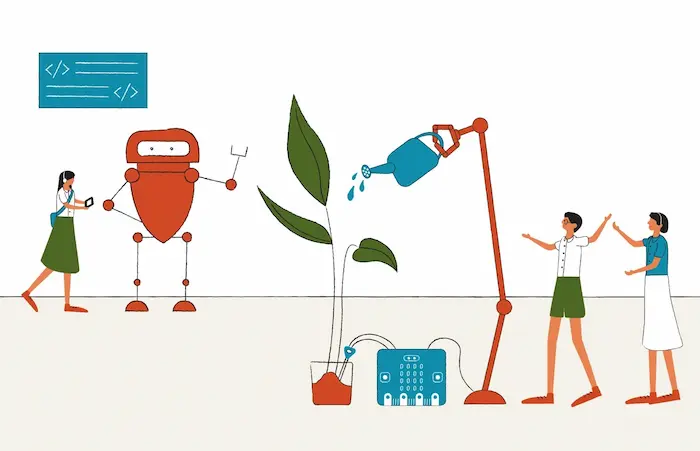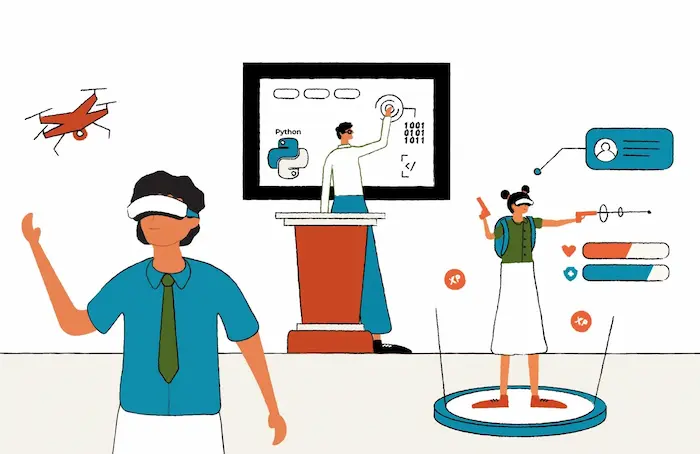Code@SG aims to introduce students to computational thinking, coding and emerging technologies to enable them to be curious, confident and creative with tech. Discover how your school (primary and secondary schools and junior colleges) can take advantage of the many exciting programmes.
-

Code for Fun
Jointly offered by IMDA and the Ministry of Education (MOE), the Code for Fun Enrichment Programme exposes primary and secondary school students to computational thinking, coding, digital making, and emerging technologies through hands-on experiences of using robotic kits and microcontrollers.
-

Infocomm Media Clubs
IMDA provides opportunities for members of infocomm and media-related clubs across MOE primary and secondary schools and junior colleges/Millennia Institute to pursue their interests, deepen their learning in emerging technologies, and gain industry exposure.
Understanding computational thinking
Computational thinking describes the processes and approaches we draw on when thinking about how a computer can help us to solve complex problems and create systems. There are four aspects to computational thinking:







.webp)